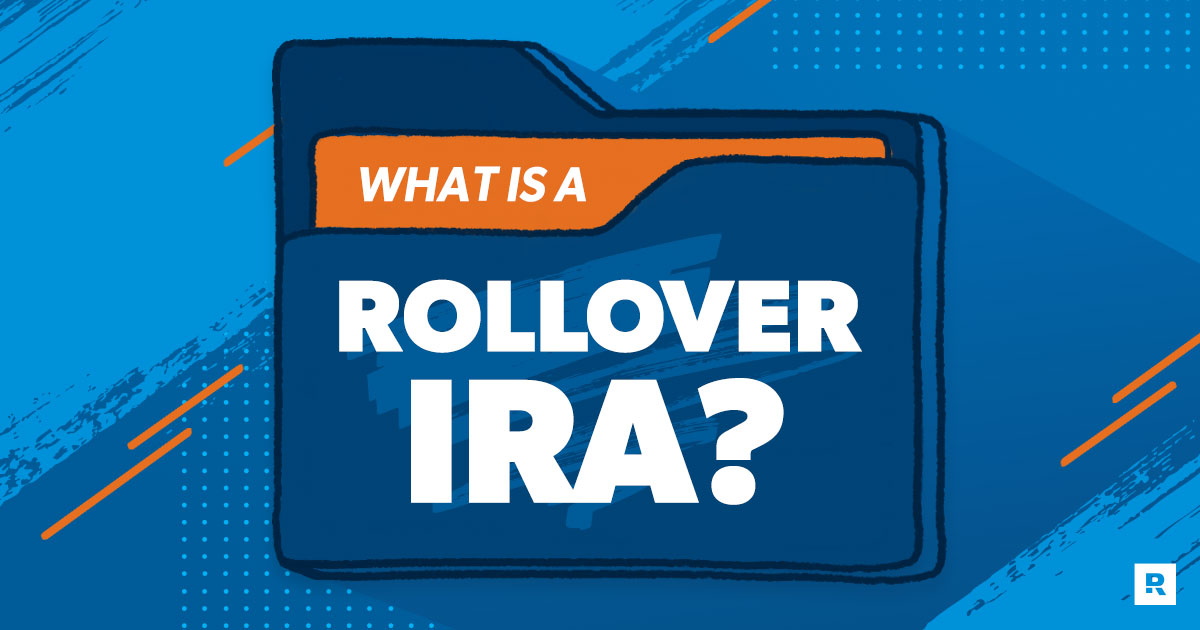
If you just started a new job, you’re probably juggling an ever-growing to-do list. Meeting your coworkers, setting up all your new accounts, trying all the local lunch spots. . .the last thing on your mind is figuring out what to do with the money in your old 401(k).
But right now, that money is just sitting in your previous employer’s 401(k) plan—lonely, bored, and collecting dust. Don’t just leave it there! Get it working even harder for you with a rollover IRA.
What is a Rollover IRA?
A rollover IRA is an individual retirement account (IRA) you transfer funds into from an old employer-sponsored retirement account, like a 401(k) or a 403(b).
Market chaos, inflation, your future—work with a pro to navigate this stuff.
An IRA isn’t an investment itself—it’s an account that holds your investments and comes with some pretty sweet tax advantages. Think of it this way: When you put your investments inside an IRA, it’s like you’re placing them under an umbrella that protects them from taxes. The same goes for your employer’s 401(k) plan, but there’s a few advantages to an IRA that makes switching umbrellas worth your time. And that’s where a rollover IRA comes in.
How is a Rollover IRA Different from a Traditional or Roth IRA?
A rollover IRA is no different from a traditional IRA or a Roth IRA—it’s just funded with money you roll over from an old retirement account..
When you open a rollover IRA, you’ll pick which type of IRA you want—traditional or Roth. Which one you choose could have big implications on your taxes, depending on what type of account you’re moving your retirement funds from (we’ll go over the tax details below).
Why Should I Roll Over to an IRA?
We’re big fans of IRAs for retirement investing. They come with a long list of benefits that make your retirement funds easier to manage:
You have more investing options.
Okay, folks, let’s start with the most important reason you should roll over to an IRA: Unlike most employer-sponsored plans that have limited investment options, an IRA lets you choose from thousands of mutual funds. That means you can invest in the best of the best—funds with a long history of strong returns, which means more opportunity for growth.
You get tax-deferred or tax-free growth.
An IRA comes with the same tax benefits as your 401(k). With a traditional IRA, you get a tax break now. With a Roth IRA, you get a tax break later. It’s a win-win! We’ll dive deeper into the tax details of both types of IRAs in a minute.
Your account isn’t tied to your employer.
Your IRA belongs to you—so it goes with you if you change jobs again. No need to worry about keeping track of old 401(k)s from jobs you haven’t even thought about in years. Plus, you’ll always be in control of the funds you invest in,
Almost anyone can roll over to an IRA.
Anyone with an earned income can open and invest for retirement with an IRA—as long as you your income doesn’t exceed certain limits. The great thing about a rollover IRA is if you’re rolling over to a traditional IRA from a traditional employer account or to a Roth from a Roth, income limits don’t apply.
If you decide a rollover IRA is the way to go, you have two options on how to transfer your money into that new IRA: a direct rollover or an indirect rollover.
With a direct rollover, the funds from your old retirement account are transferred directly to the new account without passing through your hands. No cash, no check, no contact. That means you won’t have to pay anu taxes or penalties on your funds!
Indirect rollovers, on the other hand, are more complicated. Your cash goes to you first instead of going straight to your new account, and you only have 60 days to deposit those funds into a new retirement plan before you start getting hit with penalties and taxes. That’s why you always want to stick with a direct rollover.
Now you know why a rollover IRA is a great option for old retirement accounts, but before you roll anything, talk to a financial advisor about your investing goals and let them answer any questions you have. They’ll help you decide if a rollover IRA is right for you and your situation.
Invest Like No One Else
From investing advice to wealth management, find a SmartVestor Pro who speaks your language.
Ramsey Solutions is a paid, non-client promoter of participating pros.
Traditional IRA vs. Roth IRA: Which Account Should I Roll Over To?
While Roth and traditional IRAs are both great ways to save for retirement, which type of rollover IRA you move your retirement funds to depends on the type of account you’re transferring that money from.
In most cases, your best option is to roll your retirement funds into an IRA that has the same tax treatment as the account you’re transferring the money from. So if you’re transferring money from an old traditional 401(k), you’ll move the money into a traditional IRA. Traditional to traditional, Roth to Roth. Simple, right?
Why is that? Because there’s a huge difference between how traditional IRAs and Roth IRAs are taxed—same as your 401(k):
- Traditional IRAs are funded with pre-tax dollars, so you get a tax break now when you invest (that’s because those contributions will lower your taxable income for the year). But you will have to pay taxes on any money you withdraw in retirement, and that includes taxes on your contributions and its growth!
- Roth IRAs are funded with after-tax dollars. That means you’re paying taxes on the money you put in, but then your investments grow tax-free. And that’s not the only good news about Roth IRAs—when you retire, your withdrawals are tax-free too. Sweet!
When you move money from one traditional account to another (or from a Roth account to another Roth account) you won’t have to worry about getting smacked with a huge tax bill—and let’s be honest, nobody wants that!
But what if you want to move money from a traditional account to a Roth? That’s called a Roth conversion, and you will have to pay taxes on all the money you roll over to the Roth account. That’s the bad news. But the good news is that the money will grow tax-free and you can enjoy tax-free withdrawals when you retire.
A Roth conversion could make sense if you have the cash on hand to pay the tax bill, but not everyone has hundreds or even thousands of dollars sitting around. That’s why you should always talk to an investment professional before you decide to roll funds over into an IRA. Your pro can help you figure out if a Roth conversion is right for you or if you should go with a traditional IRA for now and start saving up cash to pay the taxes for a Roth conversion later.
Keep Boosting Your Investing Know-How
Every two weeks, the Ramsey Investing Newsletter will send you practical insights, easy-to-use resources, and the latest investing news. All explained in plain English.
Get Help With Your Rollover IRA
Still have questions about transferring money into a rollover IRA? No worries! We can connect you with one of our SmartVestor Pros who can help you decide if moving your retirement savings into a rollover IRA is the right option for you.
It’s never too late to get intentional about managing your investments and a financial advisor or investing professional can help you get started today.
This article provides general guidelines about investing topics. Your situation may be unique. To discuss a plan for your situation, connect with a SmartVestor Pro. Ramsey Solutions is a paid, non-client promoter of participating Pros.



